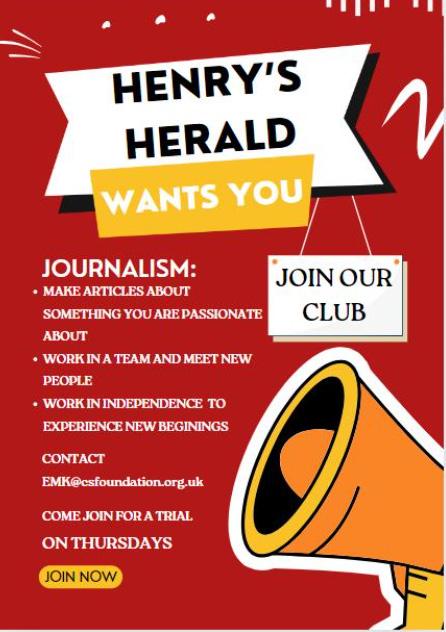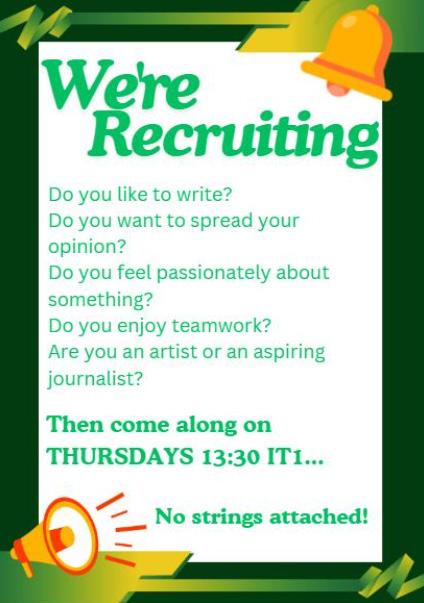

KHVIII First Ever Student Run Newspaper!





KHVIII First Ever Student Run Newspaper!


Dear Readers, if you are curious about this project, I will introduce you to it from the very beginning. So, let us start by conversing about our members! I am the editor who will be leaving comments on our Newspaper, Henry’s Herald. Our members consist of mainly Year 9s, but we do have one member in Year 8. Now allow me to introduce you to our members:
Yashveer, Tom and Humza: They are focusing on the jokes and Comedy
Marta and Riya: They work in both house drama and Happy news which you might be interested in and will be leading it. Marta is also individually working on conflicts around the world.
Leann: She is Interviewing teachers about them and their subjects for their own perspective and opinions (School Affairs).
Thomas: Political arguments and debates.
Zainab: She is Reporting ion the Bengal famine
Amelia: She is our one and only cartoonist and illustrator and she designs characters and covers for our newspaper.
George and Eesa: Creative designers
Myra: She is the editor who will also be working on House Drama along with Marta, Sophie and Riya.
The members in our club, has been assigned specific tasks every term on which they would be investigating about, so I hope you all enjoy our Newspaper which we have been spending a lot of our time on. Our teacher, Miss Kavanagh, has been guiding us throughout our journey into developing an enjoyable newspaper. In this Newspaper, we hope to catch your interest and make this as entertaining as possible, as this will be directed towards the Henry's Students so, please if you do have any concerns or recommendations, we will gladly lend an ear. Thank you for supporting us.
By Zzi Myra Shaharil

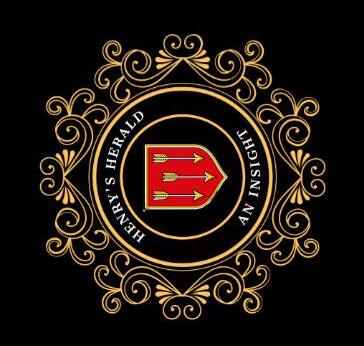
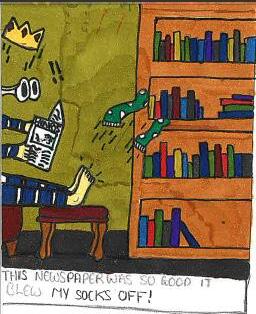
By Amelia Knight


All around the world, countless conflicts go on, and of those, many people here in the UK will know about very few. How many people could explain the wars happening in Ethiopia, Yemen, Darfur, Lebanon, Jordan, Saudi Arabia or Boko Haram? Sometimes, there seem to be so many different wars and conflicts happening around the world that you cannot keep track of them all, and this can sometime make us forget to remember the soldiers fighting and the families waiting anxiously, hoping their whole family will be safe. Is there even a good reason for these people to be experiencing these terrible feelings and the war to be happening in the first place?
The Boko Haram insurgency is a conflict that begun in the early 2000s, and gradually became more radical. In 2009, the government killed hundreds of Boko Haram members and as a retaliation, in 2014 over 200 Christian school girls were kidnapped and forcibly converted to Islam. This uprising is still happening 20 years after it started, and many lives have been lost, and other lives ruined, but it is rarely in the news now because of the time it has lasted. In a world with so much conflict, it may be hard not to always see things as black and white, and put the blame on people because of the side they are on, but we don’t know what the soldiers are feeling, or the guilt they may experience, or the worry of families at home, so picking sides will never help the conflict die down.
I believe we should also try to remember the Russia-Ukraine war that has been happening since February 2022, and the Israel-Palestine conflict that has been fought since 1948, with both conflicts losing thousands of lives. According to UN statistics, over 150 countries are now calling for a ceasefire for the Israel-Palestine conflict, and should that call not be happening everywhere, sooner, because countless lives of innocent civilians and even lives of children as well as soldiers are lost?
A modern-day example of someone who is aware of the horrors of conflict around the world is Simon Armitage, who conveys the issues of war in his poem, written just last year about the Russia-Ukraine war – Resistance. In this poem, the repetition of ‘It’s war again’ mirrors my own sentiments of the problems caused by war, however it is not all negative.
By the end of the poem, Armitage writes that ‘an air raid siren can’t fully mute the cathedral bells’, which may represent that hope is more powerful than negative events like war and that it is important to remember the positives in life.
Overall, I believe that in all wars it is important not to pick sides or anger others with any comments, but also to remember those who are currently fighting, the families of these soldiers, and any war veterans as well as those who lost their lives. I believe this because conflicts can cause drastic disabilities and mental health issues, which may not always be remembered as much as those who lost their lives, but can be equally important due to the everlasting impacts it can cause for families. I believe war is a time to unite and remember those affected in any way, so to lend an ear and kind words to people who may be suffering, and be aware of as many conflicts happening as possible.
By Marta t


Culture day amounted to be a massive success with an enormous variety of cultures being represented and celebrated. The waves of vibrant colours could be spotted all around the playground. From Barongs, Lenghas, Kebayahs, Yukatas, Hanfus, Kimonos, Eritrean, Ghanian dresses and Keffiyehs we really had it all! What a way to showcase our individuality!
Culture day amounted to be a massive success with an enormous variety of cultures being represented and celebrated. The waves of vibrant colours could be spotted all around the playground. From Barongs, Lenghas, Kebayahs, Yukatas, Hanfus, Kimonos, Eritrean, Ghanian dresses and Keffiyehs we really had it all! What a way to showcase our individuality!
However, with all events there can be a struggle behind finding what to wear. I know people who have experienced this as they don’t know what they would class as ‘British dress’ without looking like a Victorian. To combat this problem, you need to delve into what else composes our culture. Culture can range from the band you like or artist you listen to from teams you support in sports- it doesn’t just have to be your ethnic background! Some people dressed like this, whilst others came in school uniform. Is there something you're interested in that has a particular dress? This could be your solution for probable culture days to come.
So, the next time you get caught complaining about not having a ‘culture’ remember that the word culture spans a whole spectrum –arts, customs, social behaviour!
By Riya



Hale’s - Grease the Musical Holland’s - 101 Dalmatians
Sherwyn’s - The Little Mermaid White’s - 007
The evening began with Sherwyn’s and their rendition of “The Little Mermaid.” The cast, led by house head Ms. Burton and Aneesa from Year 12, put on a performance that saw all years involved and featured live music. It was clear the audience loved the show: “Under the Sea” saw the audience members clapping along, and even a technical glitch that ended up drowning Erik drew many laughs. After the performance, Ms. Burton described the cast as being at “peak creativity,” and that certainly showed through in the well-designed costumes and props that added to the story. Live music which made the performance even more engaging.
Following Sherwyn’s performance, White’s put on their twist on 007, with characters that shocked many people- including Mr. Bond. The musical was set at Henry’s and featured characters as teachers from Henry’s; the show revolved around the House competition, and someone stealing the trophy. This set off a chain of events, with teachers rushing to try and recover the missing trophy. The audience responded with enthusiasm and laughter to the funny impressions of Mr. Jones, Dr. Bagre, and Mr. Bond, who was the main character. While the performance did seem a bit unplanned at parts (with one cast member commenting it was “very unplanned when I ran on stage...”) the humor and connection to the school made the performance both engaging and relatable for the audience. However, Mr. Bond seemed to have many opinions, but declined to comment on his character being in the play.
The third performance was Holland’s take on "101 Dalmatians". The show closely followed the plot of the original story, but featured many elements of musical theatre that engaged the audience well. Live music on the piano and singing saw the audience clapping along. Set and costume designs were also particularly good; realistic sets added to the story and costumes mirrored the character’s roles.
The night ended with Hale’s "Grease" the Musical, led by Mr. Bond (who knew he would be in the performance this time). The musical was very engaging for audience members; the story was easy to follow and was aided by the upbeat songs and live piano accompaniments from the original musical. The audience clearly enjoyed the highly interactive show, and Mr. Bond’s costume saw great reactions from the crowd. The costumes were well thought through and relevant to the story. The cast had clearly worked hard; one cast member commented that it was “really fun... we took it seriously but [also] messed around with it.” There were even many live songs that were easy to hear and understand even at the other end of the room.
After a short break, the audience and the cast came back into the Hall for the results. Sherwyn’s won the night, followed by Hale’s, Holland’s in third place, and White’s in fourth. The reaction was very positive, and Ms. Burton commented that she was “very proud” of all the hard work the cast put in; however, she was also impressed with the other houses’ performances. The cast members also mirrored Ms. Burton’s reaction, with one cast member describing it as “amazing... really good,” and another commented that the whole performance was “very fun” to put on. Overall, it was an excellent night with four original and well-executed ideas that the audience and cast members engaged with and enjoyed.


On 27 May this year South Africa had its General Election. South Africa operates on a proportional representation system (instead of voting for an MP to represent your area you vote for a party and then the party receives seats based on what percentage of the national vote they won; then they appoint MPs to fill these posts).
To get its candidate in the office of President a party must be able to command 201 of the 400 seats in the National Assembly. There is another house in the South Africa electoral system, the National Council of Provinces. Each of the 9 provinces get 10 representatives in the NCOP. These seats are allotted based on the makeup of the provincial legislatures.
The ANC was one of the leading organisations involved in the struggle against Apartheid and was founded in 1912. They are broadly on the centre left of South African Politics, advocate for non-racialism, Black Economic Empowerment and Affirmative action along with a commitment to democratic and socialist ideals. They have been in power since 1994, and they have won an absolute majority in every general election except this one. However, in recent years they have gained a reputation for corruption and mismanagement of the government and state-owned enterprises (SOE) like that managing electricity, Eskom. They are led by Cyril Ramaphosa, a former Trade Unionist and business tycoon. This year the ANC won 159 seats in Parliament, meaning do not have a majority in the National Assembly, which is a new development in South African political history.
MK:
MK (meaning spear of the nation) is a relatively new party under a year old. The party sits on the left of South African Politics. They are anti-immigrant and advocate the forced seizure of white owned farmland. They also advocate for nationalization of most major economic sectors such as mining. The party became a major party through the support of Jacob Zuma. However, because of his role in state capture when he was the ANC president from 2009-2018, he is not allowed to run for president, and it is unclear who MK’s presidential candidate is. MK won 58 seats and are now the largest party in KwaZulu-Natal with 45%. However, in breaking news MK are not in Provincial Government, because of the formation of a government of National Unity. KwaZulu Natal is now ruled by an ANC, DA, IFP (Inkatha Freedom Party, a Zulu Nationalist party with a large portion of the vote in KZN) coalition.
DA: The Democratic Alliance is a descendant of the Democratic and Progressive Parties. The DA is broadly centrist, their campaign says that they will focus on fixing corruption, Eskom and other SOEs. Along with improved service delivery, they aim to do this through economic liberalisation and privatisation. They are one of the two non-ANC parties to successfully lead a Provincial government (the Western Cape). They are the official opposition to the ANC. Their leader and presidential candidate is Jan Steenhuisen. However, the DA is not without controversy, as their former mayor of Cape Town, Helen Zille is known for making polarising statements. The DA won 89 seats, making them the official opposition party. The also won a comfortable majority in the Western Cape and tied with the ANC in Gauteng.


The EFF is the on the extremes of South African politics. It is a relatively new party founded in 2013. Their leader is former ANC member Julius Malema. They advocate for seizure of white farms and nationalization of key economic sectors. Another key part of their agenda is anti-immigrant measures. In recent months many EFF voters have switched to MK. Julius Malema is a controversial person, he wants South Africa to support Russia in their invasion of Ukraine. He also has been found guilty of hate speech twice, and his party is infamous for disregarding parliamentary etiquette. The EFF manged to get 39 seats, a decline from last year. Their best results were in Gauteng and Kwa-Zulu Natal.
In breaking news on the 14th of June a Government of National Unity was formed made up of the DA, ANC, IFP and PA (a primarily Coloured party on the extremes of SA politics, wanting to bring back the death penalty, however their tiny vote share of 2% means that they will not be very powerful). John Steenhuisen will become Deputy Speaker of the National Assembly, the highest position ever held by a DA politician. This is his parties first time in National Government and will go down in DA history as a historic occasion. Cyril Ramaphosa will remain as president (as the leader of the largest party). Also, during that week Zuma’s attempt to overturn the election through legal means failed (his claim was that he should have won the election and that there was massive fraud on a national scale).
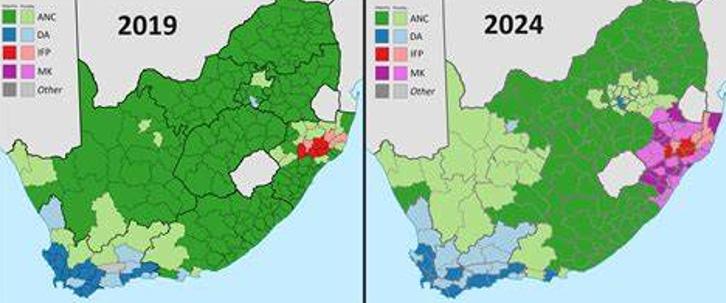

In the past couple of years HS2 has consistently been in the news. Originally proposed by the Cameron government it was conceived as a comprehensive high-speed network for England with connections to Scotland. Like other schemes and projects that had been pulled off so successful in Italy, France, Germany, Spain, China and Japan. In the original scheme it would have connected London Euston to Manchester, Leeds, Crewe and Wigan, with new 220mph trackage and new services on the existing National Rail network to Edinburgh, Liverpool, Glasgow, Newcastle and Sheffield. Behind the project there were three main goals: increase capacity on the busiest stretches of the West Coast Main Line or WMCL, decrease journey times, and decrease the number of domestic flights in England and Scotland. Funding for the project was to be given in two parliamentary bills, one for each phase. Phase 1 was passed in 2017 and Phase 2 was passed in 2021. In April of 2020 construction began on the Birmingham leg.

However, ever since the Johnson Government came into power support for the project has waned. In November of 2021 the Integrated Rail Plan led to the scrapping of the Leeds leg (one of the most important legs). Instead, speed upgrades would be made to the ECML and Midland Mainline, but this leaves the capacity problem unaddressed. In October of 2023 the generally pro-car Sunak government announced the cancellation of the Manchester leg, much of the money to go to new road projects, jeopardising the country’s climate goals, some of which he has withdrawn. Sir Keir Starmer’s Labour Party have indicated that they will not complete the Manchester leg (despite the opposition of the Labour Mayor of Greater Manchester) this is partly because the government have begun selling of the land that was bought for the construction, making any attempt to complete it more expensive than it would otherwise have been.
My conclusion is that the short-sighted decision of the current government will delay the transition to greener methods of transportation (trains, trams, busses, bicycles and walking). This decision is also indicative of the lack of ambition in British public transport projects, while our fellows on the continent are building entire new metro systems, most large British cities do not have any public transport other than buses and maybe trams. This transition is vital and inevitable, it will also come with benefits to the lives of many British people by allowing faster cleaner and more pleasant transportation.


The scheme was developed in the early 2010’s in an effort to provide cheap mass transport for Coventry, and to make use of new technology developed by Warwick and Derby universities. This technology is called Very Light Rail, and it aims to provide a cheap alternative to trams and light rapid transit (LRT).
The basic concept of the scheme is a tramway that is battery powered, runs on cheap, shallow, and modular track, while having small low-capacity vehicles. The reasons cited for the project is that traditional light rail is quite expensive (in the region of £35,000,000 to £60,000,000 per kilometre), this means that it will be more affordable to smaller cities and towns. The first route to be built would be from Coventry station to University Hospital. According to the City Council it would cost approx £7,000,000 per kilometre. Although cheap compared to a metro (£160,000,000 to £320,000,000 per km) or a Light Rail Rapid Transit (approx. £8,000,000), this would make it only slightly less expensive than a decent Bus Rapid Transit and most certainly more expensive than a bus lane.
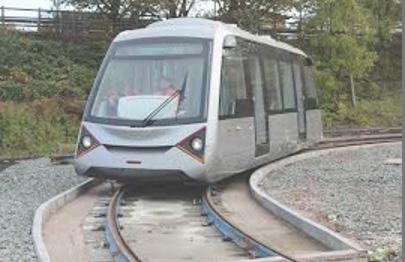
In conclusion, Coventry Very Light Rail is a poor solution to this city’s lack of good public transport. Moreover, the very premise of the scheme, that a city the size of Coventry is too small to have a tram is false. This is proven by the fact that many cities on the continent, much smaller than Coventry, have extensive tram and suburban rail networks. The job it wants to serve would need an actual tram (such as the system in Nottingham) or if the city wanted a cheaper solution, a bus lane would serve this role better than CVLR. Ideally what Coventry would benefit from would be infill stations on the two existing rail lines that cross the city along with an expanded and more frequent bus network. However, in the current economic climate investment in such a scheme is unlikely


By Leann Williams (Scribe: Myra Shaharil)
Over the last few months, I have spent time interviewing teachers around the school about their subjects and why they became a teacher. Hopefully, this will help students get to know their teachers along with their corresponding subjects better. As expected, I didn’t manage to interview every teacher, regardless I hope this still provides some insight into school life.
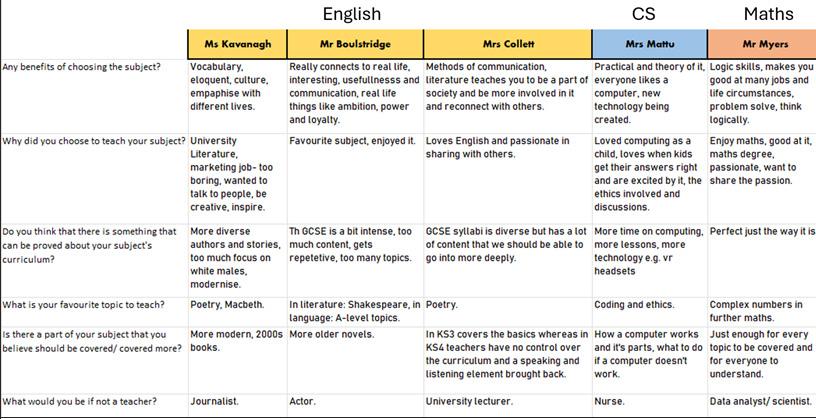


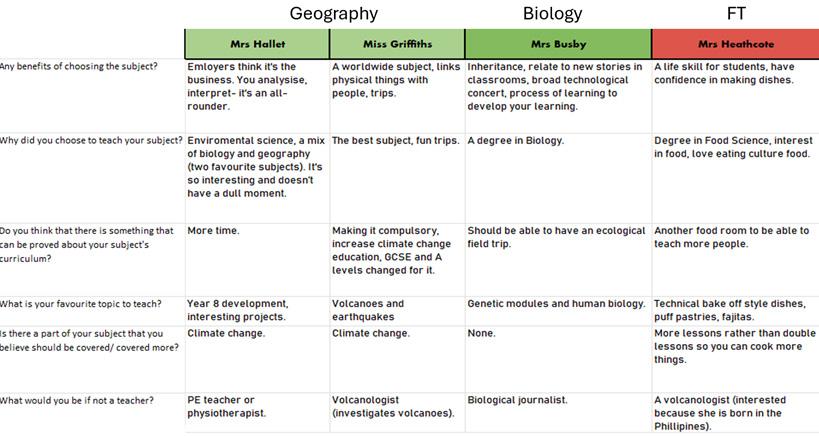

By Humza Jillani,Tom and Yash
• What does a house wear? Address.
• Why are pigs bad drivers? Because they hog the road
• Why can’t you hear a Pterodactyl in the bathroom? The P is silent.
• What do you call a sad cup of coffee? Depresso
• What did 50 Cent do when he was hungry? 58
• Why can’t a nose be 12 inches long? Because then it would be a foot
• Which country’s capital is growing the fastest? Ireland, everyday its Dublin
• I used to hate facial hair, then it grew on me.
• How do lawyers say goodbye? We’ll be suing ya!
• Can February March? No, but April May!
• Don’t trust atoms, they make up everything!
• Why are Pirates called Pirates? They just ARRRRRR
• What does a spy do when he is cold? He goes undercover.
• What do you call a Hippie’s wife? Mississippi
• What do you call a sleeping dinosaur? Dinosnaur
• Did you hear about the fire at the circus? It was in tents.
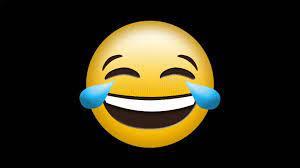

Movie recommendations
· Oppenheimer
· Oceans (movies)
· The Dark Knight
· The Dark knight rising
· The Matrix
· The Avengers Endgame
· The Lord of the Rings (movies)
· Hunger Games (movies)
· Dune 2
· The Truman show
· Gladiator
· Titanic

Here are some stories that will certainly brighten up your day


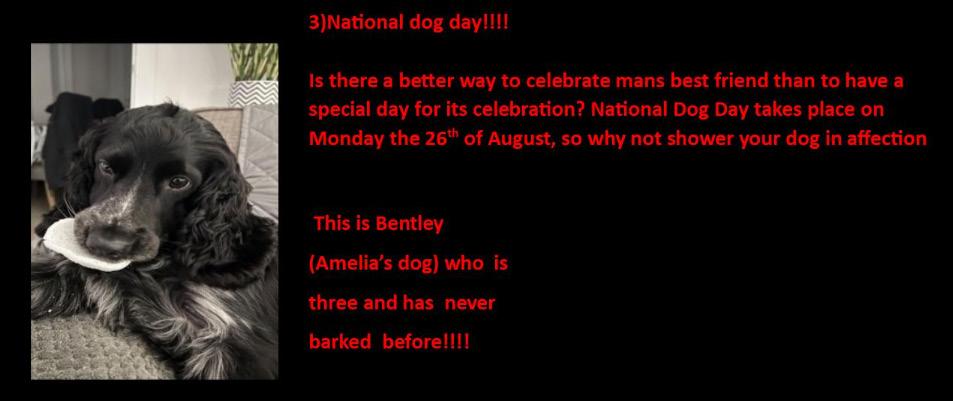
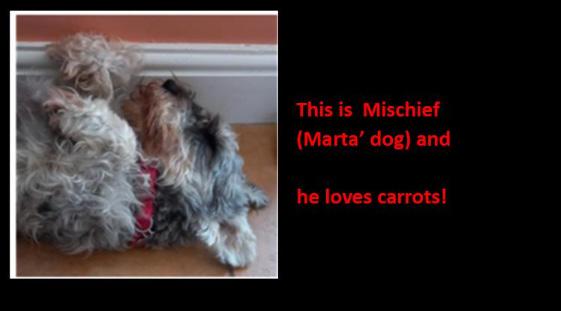


Here are some stories that will certainly brighten up your day




